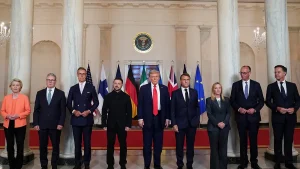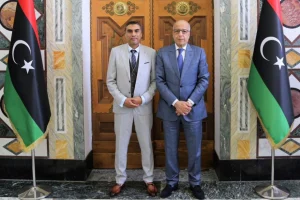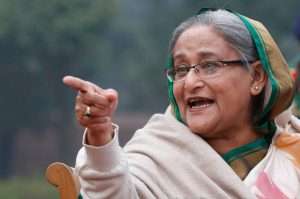Libya calls on envoys from pro-Israeli countries to leave

Libya’ eastern based parliament called for the ambassadors of Israel-friendly countries to leave over the Gaza-Israel dispute, reports AlhulBayt News Agency (ABNA), October 26.
As Libya emphasises its strong backing of Palestine, supporters of Israel have been made to feel unwelcome in the country.
Recently, the eastern government, supported by warlord Khalifa Haftar, released a statement on its website.
The statement read, “We demand that the ambassadors of the states which support the Zionist entity in its crimes leave the territory (of Libya) immediately,”.
The government statement in question was specifically targeting France, the United States, and the United Kingdom who are strong backers of Israel long before the Hamas assault earlier this month.
Libya’s parliament were strong in the condemnation of these countries’ governments for the actions they have recently taken with regards to the Israel-Gaza conflict.
1,400 Israelis were killed in the Palestinian militants’ attack on Israel on October 7.
Gaza’s health ministry said that over 6,000 Palestinians have been killed by Israeli forces in the territory since the Hamas brutalities.
The statement added, “If the massacres committed by the Zionist enemy do not stop, we demand that the Libyan government suspend the export of oil and gas to the states that support it,”.
A highly divided nation, the establishment of two rival factions in Libya’s east and west have occurred since strongman Muammar Gaddafi was toppled in a NATO-backed rebellion back in 2011.
Following the hospital blast in Gaza on October 17, hundreds took to the streets of the capital Tripoli and other cities. to express their strong support for the Palestinian cause.
The demonstrators also turned their attention to Israel, dubbing them the “Zionist enemy”.
Similar protests were seen in Morocco, Algeria, and Tunisia as anti-Israel sentiment in the Maghreb region is rife.
Just as recently as August 28, then Libyan Foreign Minister Najla Mangoush was sacked by Prime Minister Abdulhamid Dbeibah for a meeting with her Israeli counterpart Eli Cohen.
Following revelations that Mangoush met with Israel’s Foreign Minister, protests erupted in Tripoli on August 27, 28 and 29 as the crowd made it clear that she should face consequences for what they perceived to be a normalisation of ties with Israel.
After the controversial meeting on August 26, the country’s politicians called for Libya to take a tougher approach to those who associate with Israel last month.
The Libyan House of Representatives spokesman said “The representatives agreed to amend the law criminalising normalisation with Israel.”
Historically, Libyans have said that they do not recognise Israel as a legitimate state.
ABNA
Want to chase the pulse of North Africa?
Subscribe to receive our FREE weekly PDF magazine













